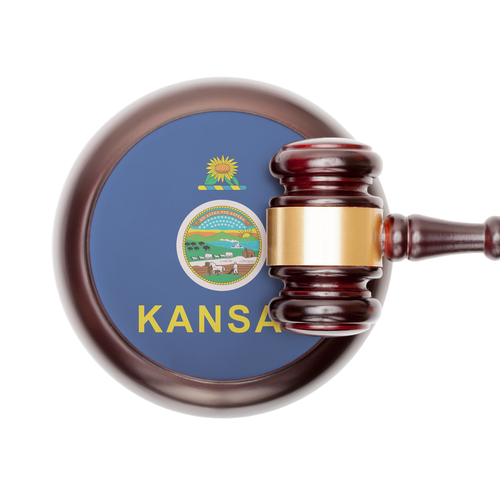Your recipe for effective legal writing

Photo of Bryan Garner by Winn Fuqua Photography
Part one of a three-part series. Read part two and part three.
Congratulations. You’re the newest hire at your state attorney general’s office. They advertised for an experienced litigator with sound writing skills, and you got the job. Your first law job was in this very office—and you know the demands can be great. Now, after a few years in private practice, you’re among the most experienced litigators in the office. After two days of orientation, you’ve just arrived for your first day of work.
It’s 8:45 a.m. Your supervising attorney briefly explains pressing needs for the day: You’re handed three case files, each with a 5 p.m. deadline. No extensions are possible. One is a motion to strike an expert witness’s testimony supporting a summary judgment motion in federal court; one is a state court motion for judgment on the pleadings; and the third is a motion to consolidate two proceedings in the state supreme court: a mandamus petition and a direct appeal.
Each motion will require an accompanying form of order, but none will need affidavits or other ancillary filings. You know all this from your experience in state and federal courts.
Your predecessor resigned, citing “burnout.” How will you fare?
The upshot of this series is to show how an efficient and effective legal writer must sometimes work.
Getting to work
The basis for challenging the expert isn’t Daubert rationale but 28 U.S.C. § 1746. You have no clue about that statute. The motion for judgment on the pleadings, you’re told, is based on the state’s immunity from suit on construction liens—that’s § 57.035(1) of the state code. The motion to consolidate is simply common sense: The two appellate matters are essentially identical, but the appellant has filed both a direct appeal and a mandamus petition. You can review the briefs to see that it’s the same set of facts.
You ask whether any attempt has been made to work out the motion to consolidate with the other side. That’s the only motion requiring a conference, as you know, and your boss says she exchanged emails three days ago with opposing counsel, who opposed consolidation. It’s all in the file.
Your boss excuses herself, assuring you that your legal assistant will help file the papers as soon as they’re ready. But the three deadlines are firm.
A far-fetched scenario?
If you think the circumstances I’m describing are outlandish, I can assure you that these things happen. And there are analogous situations in all walks of life.
Watch a few episodes of The Great British Baking Show. It’s all about skill, knowledge and efficiency. The immediate spark behind this column was viewing an episode in which three finalists—skilled amateurs—were asked to make 36 desserts in two hours’ time: 12 Victoria sandwiches, 12 lemon-custard tarts and 12 miniature scones. There were no recipes, and there was no further explanation. The contestants started with just flour, fruit, sugar and butter. The output was expected to be perfect: each dozen uniform in shape and size, the internal layers distinct and gustatorily complementary, and the presentation aesthetically pleasing. Oh, and each item had to be scrumptious.
When the deadline came, the contestants had to stop immediately. The desserts were presented to the judges as they stood at precisely 120 minutes. You can imagine all the would-be contenders who had fallen by the wayside before this point in the competition. But these were finalists.
Anyone who hadn’t prepared properly might say, “Why am I doing this to myself?” Preparing, in this sense, means spending months and even years acquiring the necessary know-how. You don’t prepare yourself in a week or even a month for undertaking this type of challenge.
Meeting your challenge
The same is true of you as a lawyer. You’re experienced. You’ve prepared briefs and motions for some time now. In applying for this job, you billed yourself as a good writer, and you had glowing recommendations. You made it through: You were hired. Now down to work.
First you must plan your day, allocating time for each task. Time management is crucial. The motion to consolidate seems easiest; the motion for judgment on the pleadings will be hardest. You’ll give yourself an hour to figure out the dispositive points for the judgment on the pleadings and 30 minutes to draft point headings. It’s 9 a.m. now; that takes you to 10:30.
At 10:35, you’ll take up the expert witness challenge, giving yourself 55 minutes to review the file while taking notes, and then 30 more to draft point headings. How many point headings? You won’t know until you delve into the problem.
Then you’ll read over the high-court briefs to verify the identical nature of the two proceedings. You’ll try for a very short motion to consolidate, succinctly pointing out the commonalities between the cases. That will take you to 1:30.
At 2 p.m., you’ll have one hour to finalize each of the three filings. If you can knock out the easier ones in less time, you’ll have more time to polish off the motion for judgment on the pleadings. It should be halfway written in your head once you have the point headings at 10:30.
You resolve to file the motion to consolidate by 3 p.m., the motion to strike expert testimony by 4 p.m. and the judgment on the pleadings by 5 p.m. It crosses your mind to ask for templates—similar motions from other cases—but the search might waste precious time. You’re not a generic lawyer. You disdain formbook-style filings. You can doubtless work best from scratch.
The three filings
Being a virtuoso writer, you have clear expectations of yourself. In each filing, you must state in plain English, on page 1, the precise point to be adjudicated and the basis on which it should be decided in the state’s favor. No conclusory statements allowed. No insults directed at the other side. You must come across as the voice of reason.
For the motion’s body, you must have two or three paragraphs under each point heading. The point headings will be full-sentence assertions in boldface, without initial capitals or all-caps. They should be 15 to 35 words long—two to four lines. No more.
In the conclusion, you must avoid the cop-out generic statement “For all the foregoing reasons.” You must sum up in a freshly written paragraph, using some new vocabulary or a new angle to wrap up the points you’ve already compellingly made. Being a fan of Aristotle, you wouldn’t dream of doing what so many lawyers do: just exhorting the judge to reread the stuff you’ve written up to this point.
You know judges, and you know how they detest having their time wasted.
You also scorn all the common catchphrases to excuse mediocrity: “Good enough is good enough.” “Perfect is the enemy of good.” “It’s good enough for government work.”
If it were a baking competition, the judges would be interested in both style and substance. But these aren’t baker judges you’re attending to: They’re judicial officers. They’ll want to see how sound your arguments are, and they’ll be influenced somewhat by the presentation.
To monitor the progress of your day, we must wait for part two in this series. Meanwhile, since you’re so fascinated with demonstrations of skill in various fields, I suggest you watch an episode or two of The Great British Baking Show—even if you have little interest yourself in baking. The analogy is real.
Bryan A. Garner, president of Dallas-based LawProse Inc., has taught writing seminars over the years to more than half of the offices of attorney general throughout the United States. He has also taught at the U.S. Department of Justice and the U.S. solicitor general’s office. Among his more than 25 books is The Winning Brief: 100 Tips for Persuasive Briefing in Trial and Appellate Courts. Although he won a baking competition in high school, he long ago retired his apron.



